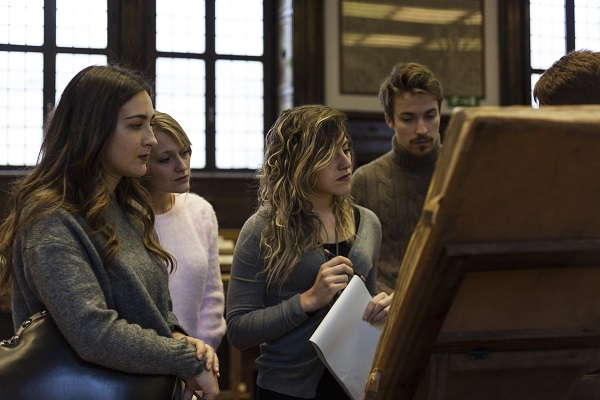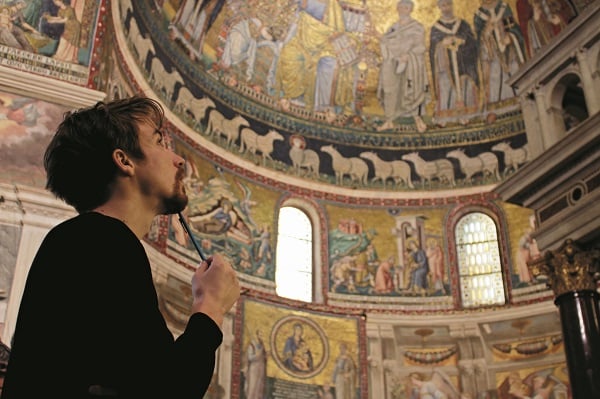

Taking classes in humanistic studies can teach us how to better understand how people live and think, but it’s so much more than that. Humanistic studies is where students learn how to analyze other cultures through the lenses of history, literature, the arts, philosophy, and religion. By learning how to examine cultural products and how they can each be contextualized and connected to one another, you can acquire a greater appreciation for the human condition as a whole.
A Bachelor of Arts in Humanistic Studies at JCU can help you not only gain a deeper understanding of humans and their cultural development throughout history, but also help you learn how to build on skills that will serve you well throughout your education and career. Here are some of the skills you can develop throughout your studies.
Learning About Different Cultures and the History of Their Ways of Life
One of the key outcomes of completing a degree in humanistic studies is understanding how humans across cultures have adapted their ways of thinking and living over time. By examining art forms originating in ancient times, as well as more contemporary ones, you can see how people living in different times and cultures have understood their world and how they fit within it.
With humanistic studies, you can learn how to carefully examine religion, art, literature, and history to understand people both past and present.You can expect to learn how to analyze cultural products and how to apply academic research toward understanding and comparing them, to see how culture has evolved throughout history.

Learn How to Find and Communicate Information
A major component of humanistic studies is learning how best to use research for the purpose of analyzing and contextualizing cultural products. One of the most important skills you can develop while you study humanistic studies in Rome is to how to find information that is reliable, thoroughly-researched, and cohesive. This is a skill set that will help you not only communicate your viewpoints efficiently in essays and spoken presentations, but do so in adherence to standards for academic integrity and ethics.
To be able to express and communicate information in this manner can go a long way during your studies and future career. How so? Understanding how to analyze information and find trustworthy resources are key to developing critical thinking skills—a much-needed asset in academia and the professional world.

Developing Your Ability to Defend Your Analyses and Arguments
Developing your critical thinking skills is one of the most beneficial things you can do while you study in Italy. Expressing your ideas in a humanistic studies program involves doing so critically, and this can go hand in hand with being able to defend your points of view as effectively as possible. During your studies, you’ll be able to learn how to not only view many cultural products with a theoretical lens but also form coherent arguments and analysis based on your findings. You’ll be able to develop your skills in debating and forming strong arguments, helping you not only understand how to think critically, but how to convey your ideas effectively so that others can benefit from them as well.
Do you want to study at an English language university in Italy?
Contact John Cabot University for more information!




